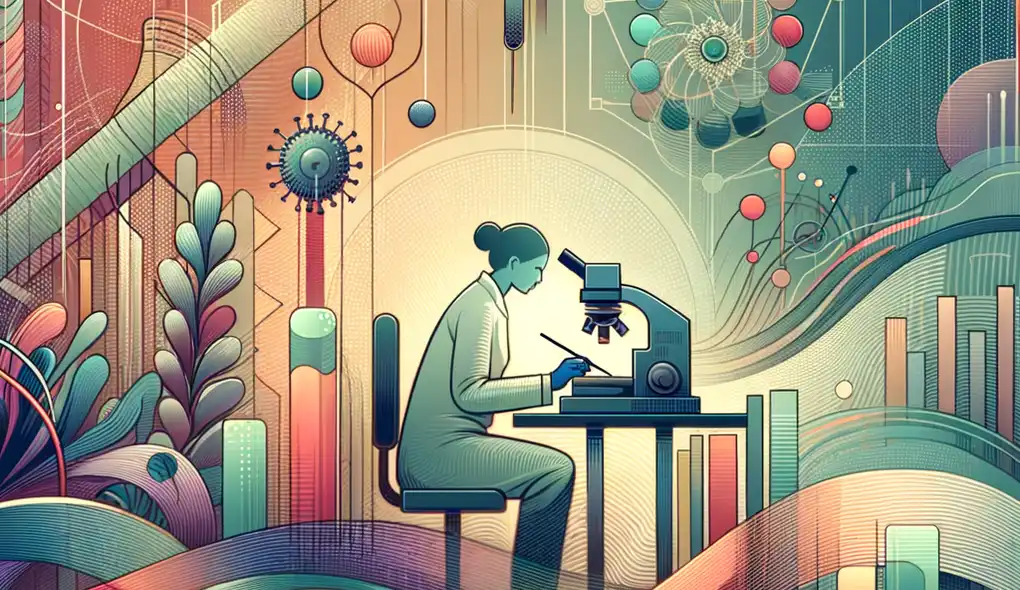What kind of biology or genetics research have you been involved in?
Microarray Analyst Interview Questions
Sample answer to the question
During my time in university, I had the opportunity to work on a genetics research project focusing on the study of gene expression in cancer cells. We used microarray technology to analyze the gene expression patterns and identify genes that are differentially expressed in cancer cells compared to normal cells. I was responsible for conducting the microarray experiments, handling the laboratory equipment, and preparing the samples. I also performed data analysis using statistical software to identify significant gene expression changes. We presented our findings at a national biology conference and published a paper in a peer-reviewed journal.
A more solid answer
During my undergraduate research, I actively participated in a genetics project that focused on investigating the role of specific genes in diabetes development. We utilized microarray technology to analyze the gene expression profiles of pancreatic beta cells in diabetic and healthy individuals. As a part of the team, I conducted microarray experiments, prepared the samples, and ensured adherence to laboratory practices and protocols. I also performed data analysis using statistical software, identifying several genes that showed significant differential expression in diabetic individuals. These findings were instrumental in gaining a deeper understanding of the molecular mechanisms underlying diabetes. We presented our research at a national genetics conference and published a paper in a reputable scientific journal, contributing valuable insights to the field.
Why this is a more solid answer:
The solid answer provides more specific details about the candidate's role and responsibilities in the genetics research project. It also highlights the outcomes and impact of the research, showcasing their ability to contribute to scientific knowledge and disseminate findings through presentations and publications. However, it could still benefit from further elaboration on the candidate's software proficiency and record-keeping skills.
An exceptional answer
Throughout my academic career, I have been actively involved in a range of biology and genetics research projects, each contributing to my expertise in the field. One notable project I worked on was focused on investigating the genetic basis of Alzheimer's disease by analyzing DNA methylation patterns in brain tissues. Utilizing microarray technology, I performed high-throughput experiments to profile the methylation status of thousands of genes. With advanced statistical analysis techniques, I identified distinct methylation patterns associated with Alzheimer's disease progression. These findings played a pivotal role in understanding the epigenetic mechanisms underlying the disease and potentially identifying important biomarkers. Additionally, I have honed my skills in laboratory practices, ensuring strict adherence to protocols and maintaining accurate records of all procedures. My proficiency in statistical analysis software allowed me to effectively process and interpret large datasets, providing robust evidence for my research findings. This comprehensive experience in molecular genetics research positions me well for the Microarray Analyst role, as I am well-versed in microarray technology, data analysis, and record-keeping practices.
Why this is an exceptional answer:
The exceptional answer demonstrates not only a deeper level of involvement in genetics research but also showcases the candidate's expertise in a specific area (DNA methylation patterns in Alzheimer's disease). It highlights the candidate's advanced skills in data analysis and showcases their ability to contribute to scientific knowledge and potential biomarker discovery. The answer also emphasizes the candidate's proficiency in laboratory practices and statistical analysis software, aligning with the required skills mentioned in the job description.
How to prepare for this question
- Review your past biology and genetics research projects to identify the ones that align closely with the job requirements.
- Be prepared to discuss your specific responsibilities and contributions in those research projects.
- Think about the outcomes and impact of your research, including any presentations or publications.
- Refresh your knowledge of microarray technology, genetic concepts, and statistics.
- Consider any experiences you have with software commonly used in genetic data analysis, such as R or Python.
What interviewers are evaluating
- Genetics
- Microarray technology
- Data analysis
- Laboratory practices
- Record keeping
- Software proficiency
Related Interview Questions
More questions for Microarray Analyst interviews